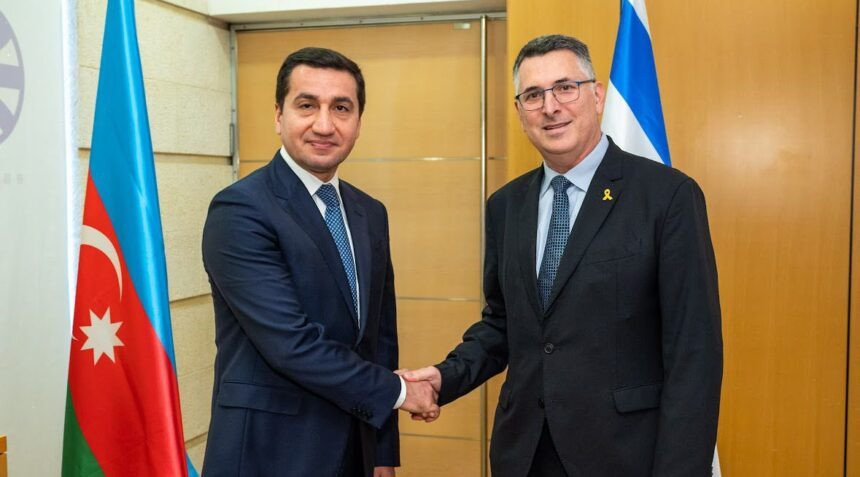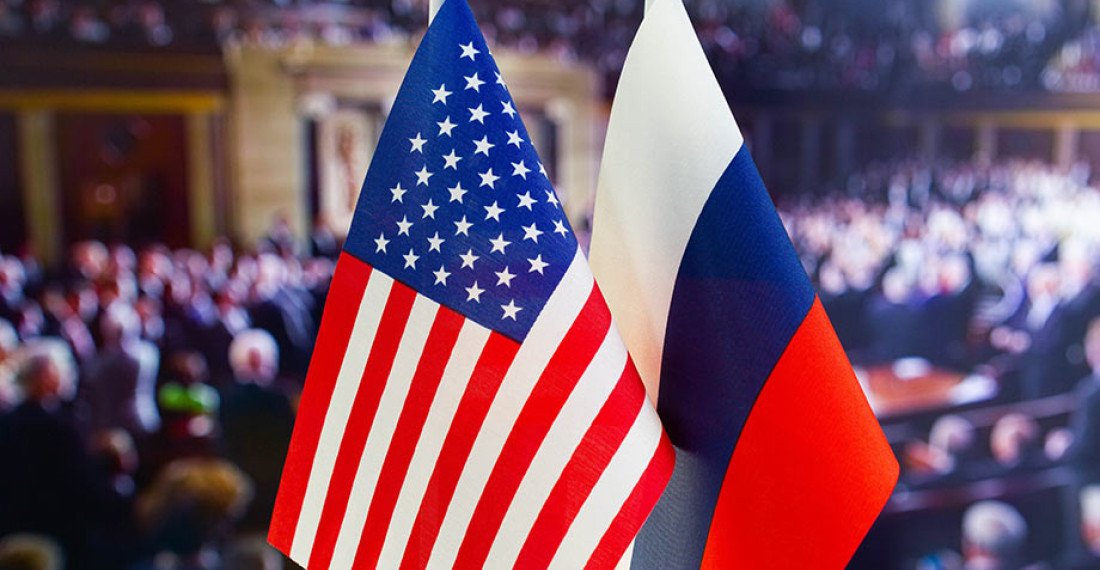On November 15, the French Senate adopted a resolution calling for sanctions to be imposed against Azerbaijan and for France to recognize the so-called “Nagorno-Karabakh Republic” – a separatist entity established by Armenia in the territories of Azerbaijan in early 1990s. In disregard to the international law and principles as well as the internationally-adopted resolutions concerning the Armenia-Azerbaijan conflict, the Senate questioned the territorial integrity of Azerbaijan.
The Senate also held a one-sided approach to the latest escalation between Armenian and Azerbaijani troops in September and called upon the Azerbaijani units to leave what it called “Armenian territory”, though no delimitation of the border happened due to the 30 years Armenian occupation. It called upon the French government to impose sanctions against Azerbaijan, ‘consider setting up a humanitarian office in Nagorno-Karabakh’ and immediately request the deployment of an international peacekeeping force to ‘guarantee the security of the Armenian populations and of Armenia’.
The resolution, which was adopted almost unanimously (295-1), does not oblige the French government to implement it, but for a variety of reasons, it complicates the peace negotiations between the two South Caucasian republics and reconciliation prospects between their peoples.
First and foremost, it is important to make it clear that foreign and security policy in France is under the control of the President, and the National Assembly has negligible power over the president’s foreign agenda, but there is an apparent consensus between the parliament and incumbent President Emmanuel Macron in this specific issue. It is no coincidence that almost a month before the adoption of this resolution, President Emmanuel Macron, in a similarly-worded statement, accused Azerbaijan of launching “a terrible war” in 2020 to retake the Karabakh region, as well as triggered “offensives” in mid-September on the Armenia-Azerbaijan state border. Macron did not go as far as recognizing the so-called “Nagorno-Karabakh Republic”, but he named the region where it is located as “disputed territory” – even though he himself two years ago admitted that “Nagorno-Karabakh” internationally recognized as part of Azerbaijan. This is a fact that is not disputed even by the Prime Minister of Republic of Armenia who has on a number of occasions stated that “the entire world recognizes Karabakh as belonging to Azerbaijan”.
Such statements of the French President are perceived in Azerbaijan as unacceptable but also notably surprising considering that Azerbaijan has had quite amicable relations with France under the predecessors of Emmanuel Macron. “I had the opportunity to communicate quite closely with President Chirac, President Sarkozy and President Hollande, and our relations were quite balanced, quite friendly, and we always perceived the activities of previous French presidents, despite, of course, a certain factor of the Armenian diaspora in France, as balanced”, President Ilham Aliyev of Azerbaijan stated in his response to the aforementioned statement of President Macron about the Karabakh region of Azerbaijan, adding that “he current French leadership has effectively crossed out all this”.
The presence of strong Armenian diaspora in France has, however, been an important factor in the formation of this country’s policies concerning the Armenia-Azerbaijan conflict. In the course of the First Karabakh War, France tilted towards Armenia at the UN Security Council discussions about the war and sought to exculpate Armenia for its invasion despite it carrying out ethnic cleansing against Azerbaijanis at the time those discussions were held. According to recently declassified State Department cables concerning the Armenia-Azerbaijan conflict, France’s UN Ambassador watered down the language of the UN Security Council resolution proposed by the USA and other members of the Council and succeeded to minimize its consequences for Armenia. At the insistence of France, the perpetrators of the invasion were mentioned as “local Armenian forces” (i.e., not Armenia as a State) and the conflict was treated not under the Chapter VII of the UN Charter as an “act of aggression,” but under the weaker Chapter VI as a dispute that should be settled peacefully.
Over the years since then, this bias persisted in French foreign policy despite the fact that the country took over a mediating role as a co-chair of the Minsk Group of the Organization for Security and Cooperation in Europe (OSCE) – the institution that was mandated to mediate peace talks between Baku and Yerevan. This was clearly manifested in late 2020, when both chambers of the French parliament adopted resolutions calling for the recognition of the “Nagorno-Karabakh Republic” a month after the Second Karabakh War. They disregarded the fact that even the Republic of Armenia had not recognized this separatist entity. However, these resolutions, in a similar way to the latest Senate resolution, are legally non-binding and, thus, the French government has not implemented them in practice.
Indeed, the latest resolution of the Senate and the statements of the French President have come up amidst the growing and potentially successful efforts of Armenia and Azerbaijan to sign a peace treaty in the near future. This treaty might include a series of elements concerning the relations between Armenia and Azerbaijan, but, most importantly, it is being planned to be based on mutual recognition of each other’s territorial integrity. The sides have already declared their readiness to sign such a deal on a number of occasions over the last two months including at the Prague summit (October 6) where the peace talks were attended also by European Union Council’s President Charles Michel as well as Emmanuel Macron himself.
At this summit, Armenian and Azerbaijani leaders agreed to recognize each other’s territorial integrity in line with the Charter of the United Nations and Alma Ata declaration of 1991. Oddly enough, almost week after this summit, French President made the above-mentioned statement and called “Nagorno-Karabakh” a disputed territory, which begs the questions of why does the French leader hold such a destructive policy line in this process? Why do President Macron and the French parliamentarians open the problematic chapters of the conflict while Armenia and Azerbaijan are taking steps towards a peace treaty based on mutual recognition of their territorial integrity?
This destructive approach of French legislators emboldens the radical nationalist groups in Armenia and encourage them to more actively oppose the peace talks between Baku and Yerevan. In this regard, there is a clear similarity between the policies of France and Russia with respect to the Armenia-Azerbaijan peace process. Both sides appear to be more interested in the persistence of this conflict in some form. They bring up the issues related to the Karabakh region amidst the latest peace treaty efforts and encourage the Armenian radical groups to oppose Yerevan’s acknowledgement of Azerbaijan’s sovereignty over the Karabakh region.
It is clear that any peace treaty without resolving the crux of this conflict – the territorial integrity of Azerbaijan – will fall short of putting an end to all this violence and hostilities between the two peoples of the South Caucasus. By adopting resolutions calling for recognition of the “Nagorno-Karabakh Republic” and disputing Azerbaijan’s sovereignty over the Karabakh region, the French parliament does not contribute to the peace efforts in the region, to say the least.
https://moderndiplomacy.eu/2022/11/20/france-complicates-the-armenia-azerbaijan-peace-process/








